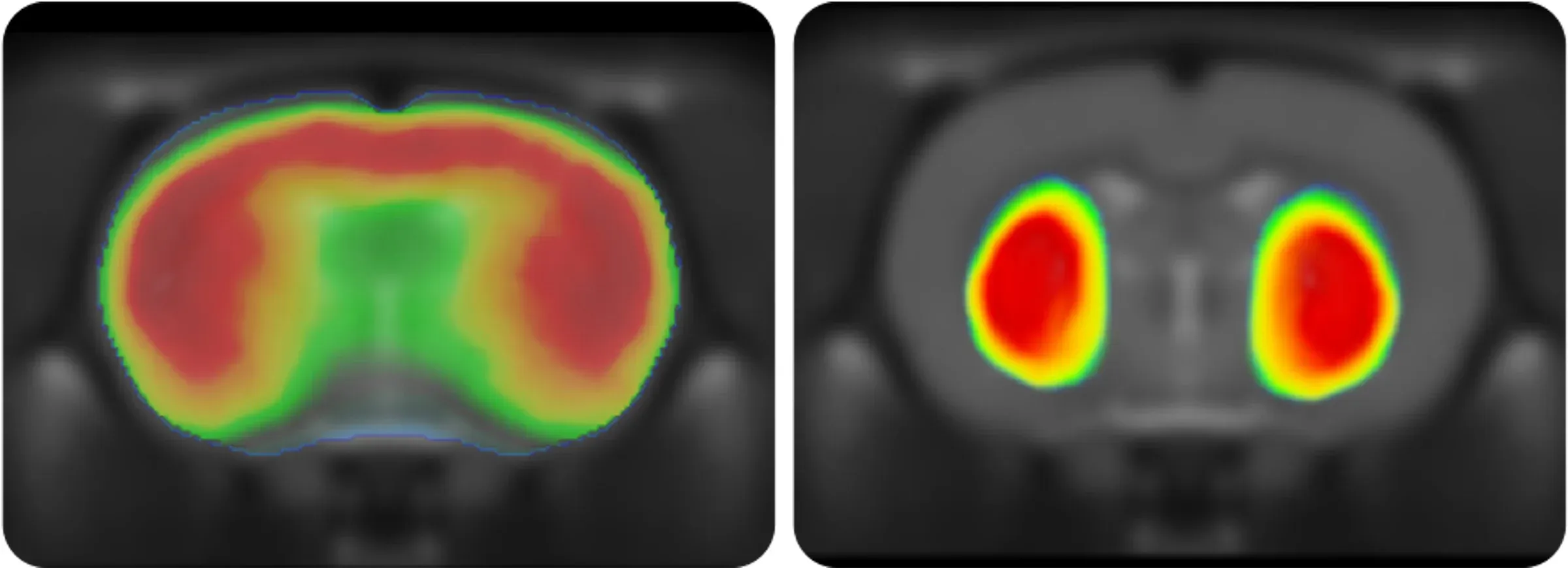Positron Emission Tomography (PET)
Preclinical PET imaging allows for metabolic and molecular imaging in rodent models. PET imaging is currently used in clinical trials of neurodegenerative diseases to assess glucose metabolism, β-amyloid burden, tau pathology, and dopaminergic terminal density.
At Biospective, we have demonstrated regional glucose hypometabolism is several of our mouse models, including our alpha-synuclein Parkinson's disease model and TDP-43 ALS mouse model. We can also work with a range of other radiolabeled tracers for PET studies in mice and rats.

A key to successful PET imaging is rodent model is accurate analysis of measures, such as SUVR, from specific brain regions or via voxelwise analysis. We have developed sophisticated, image registration algorithms, as part of our our proprietary NIGHTWING™ software platform, to align rodent brain PET images with MRI scans to allow for fully-automated analysis.

Learn more about our Positron Emission Tomography (PET) Services.